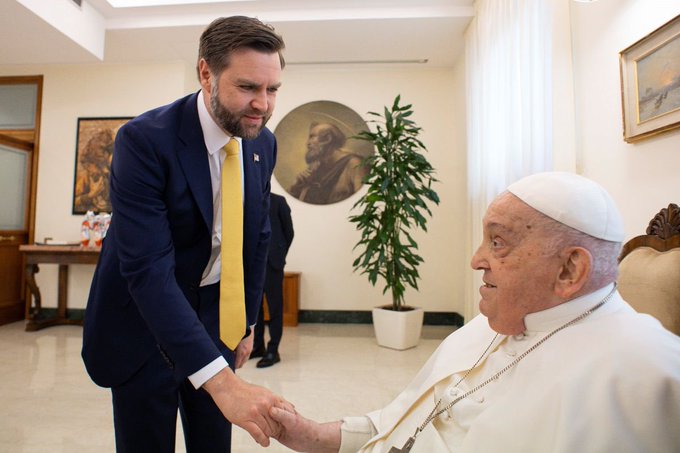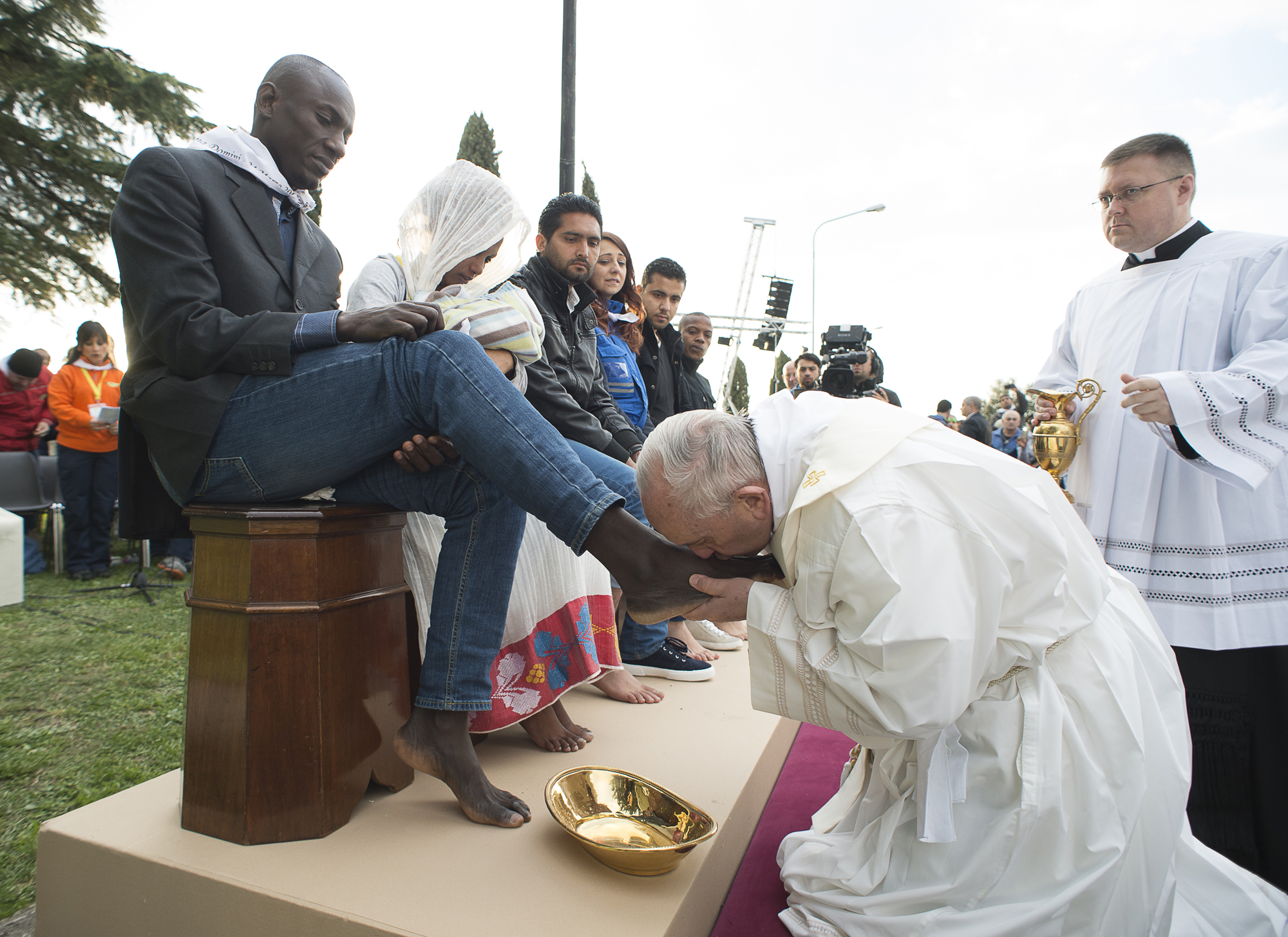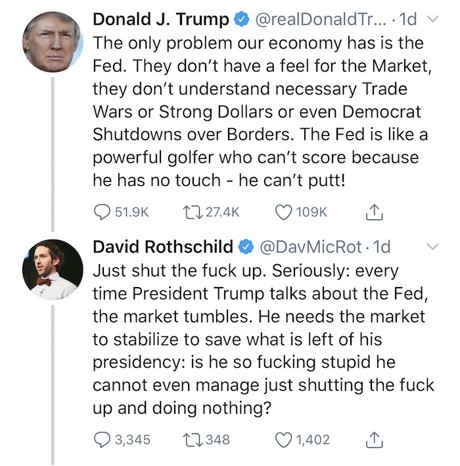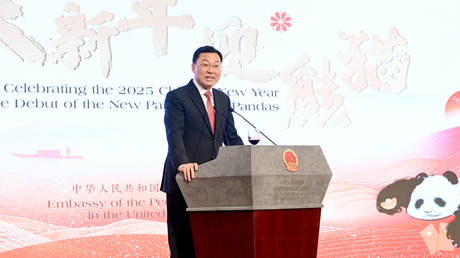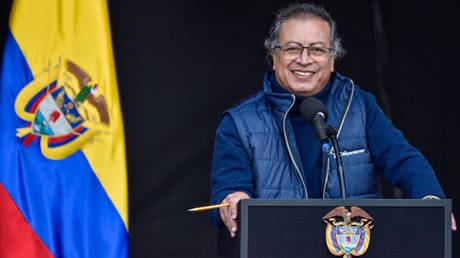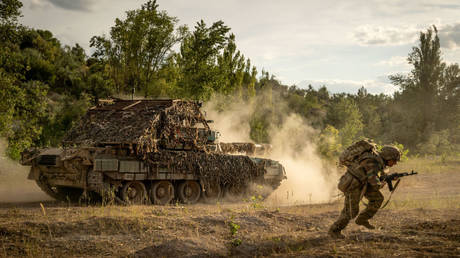The History of Paschal Time(by Fr. Prosper Gueranger 1870)
We give the name of Paschal Time to the period between Easter Sunday and the Saturday following Whit Sunday. It is the most sacred portion of the Liturgical Year, and the one towards which the whole Cycle converges. We shall easily understand how this is, if we reflect upon the greatness of the Easter Feast, which is called the Feast of feasts, and the Solemnity of solemnities, in the same manner, says St. Gregory (Homilia, xxii.), as the most sacred part of the Temple was called the Holy of Holies; and the Book of Sacred Scripture, wherein are described the espousals between Christ and the Church, is called the Canticle of canticles. It is on this day, that the mission of the Word Incarnate attains the object towards which it has hitherto been unceasingly tending: mankind is raised up from his fall, and regains what he had lost by Adam's sin.
Christmas gave us a Man God; three days have scarcely passed, since we witnessed His infinitely precious Blood shed for our ransom; but now, on the day of Easter, our Jesus is no longer the Victim of death: He is a Conqueror, that destroys death, the child of sin, and proclaims life, that undying life which He has purchased for us. The humiliation of His swathing bands, the sufferings of His Agony and Cross, these are passed; all is now glory, glory for Himself, and glory also for us. On the day of Easter, God regains, by the Resurrection of the Man God, His creation such as He made it at the beginning; the only vestige now left of death, is that likeness to sin which the Lamb of God deigned to take upon Himself. Neither is it Jesus alone that returns to eternal life; the whole human race also has risen to immortality together with our Jesus. 'By a man came death,' says the Apostle; 'and by a Man the Resurrection of the dead: and as in Adam all die, so also in Christ all shall be made alive (I. Cor. xv. 21, 22).
The anniversary of this Resurrection is, therefore, the great Day, the day of joy, the day by excellence; the day to which the whole year looks forward in expectation, and on which its whole economy is formed. But as it is the holiest of days, since it opens to us the gate of Heaven, into which we shall enter because we have risen together with Christ, the Church would have us come to it well prepared by bodily mortification and by compunction of heart. It was for this that she instituted the Fast of Lent, and that she bade us, during Septuagesima, look forward to the joy of her Easter, and be filled with sentiments suitable to the approach of so grand a solemnity. We obeyed; we have gone through the period of our preparation; and now the Easter sun has risen upon us!
But it was not enough to solemnize the great Day when Jesus, our Light, rose from the darkness of the tomb: there was another anniversary which claimed our grateful celebration. The Incarnate Word rose on the first day of the week, that same day, where on, four thousand years before, He, the Uncreated Word of the Father, had begun the work of the Creation, by calling forth light, and separating it from darkness. The first day was thus ennobled by the creation of light. It received a second consecration by the Resurrection of Jesus; and from that time forward Sunday, and not Saturday, was to be the Lord's Day. Yes, our Resurrection in Jesus which took place on the Sunday, gave this first day a preeminence above the others of the week: the divine precept of the Sabbath was abrogated together with the other ordinances of the Mosaic Law, and the Apostles instructed the faithful to keep holy the first day of the week, which God had dignified with that twofold glory, the creation and the regeneration of the world. Sunday, then, being the day of Jesus' Resurrection, the Church chose that day, in preference to every other, for its yearly commemoration. The Pasch of the Jews, in consequence of its being fixed on the fourteenth of the moon of March, (the anniversary of the going out of Egypt,) fell by turns on each day of the week. The Jewish Pasch was but a figure; ours is the reality, and puts an end to the figure. The Church, therefore, broke this her last tie with the Synagogue; and proclaimed her emancipation, by fixing the most solemn of her Feasts on a day, which should never agree with that on which the Jews keep their now unmeaning Pasch. The Apostles decreed, that the Christian Pasch should never be celebrated on the fourteenth of the moon of March, even were that day to be a Sunday; but that it should be everywhere kept on the Sunday following the day on which the obsolete calendar of the Synagogue still marks it.
Nevertheless, out of consideration for the many Jews who had received Baptism, and who formed the nucleus of the early Christian Church, it was resolved that the law regarding the day for keeping the new Pasch, should be applied prudently and gradually. Jerusalem was soon to be destroyed by the Romans, according to our Saviour's prediction; and the new City, which was to rise up from its ruins and receive the Christian colony, would also have its Church, but a Church totally free from the Jewish element, which God had so visibly rejected. In preaching the Gospel and founding Churches, even far beyond the limits of the Roman Empire, the majority of the Apostles had not to contend with Jewish customs; most of their converts were from among the Gentiles. Saint Peter, who in the Council of Jerusalem had proclaimed the cessation of the Jewish Law, set up the standard of emancipation in the City of Rome; so that the Church, which through him was made the Mother and Mistress of all Churches, never had any other discipline regarding the observance of Easter, than that laid down by the Apostles, namely, that it should be kept on a Sunday.
There was, however, one province of the Church, which for a long time stood out against the universal practice: it was Asia Minor. The Apostle St. John, who lived for many years at Ephesus, where indeed he died, had thought it prudent to tolerate, in those parts, the Jewish custom of celebrating the Pasch; for many of the converts had been members of the Synagogue. But the Gentiles themselves, who, later on, formed the mass of the faithful, were strenuous upholders of this custom, which dated from the very foundation of the Church of Asia Minor. In the course of time, however, this anomaly became a source of scandal: it savoured of Judaism, and it prevented unity of religious observance, which is always desirable, but particularly so in what regards Lent and Easter.
Pope St. Victor, who governed the Church from the year 193, endeavoured to put a stop to this abuse; he thought the time had come for establishing unity in so essential a point of Christian worship. Already, that is in the year 160, under Pope St. Amiicetus, the Apostolic See had sought, by friendly negociations, to induce the Churches of Asia Minor to conform to the universal practice; but it was difficult to triumph over a prejudice, which rested on a tradition held sacred in that country. St. Victor, however, resolved to make another attempt. He would put before them the unanimous agreement which reigned throughout the rest of the Church. Accordingly, he gave orders, that Councils should be convened in the several countries where the Gospel had been preached, and that the question of Easter should be examined. Everywhere there was perfect uniformity of practice; and the historian Eusebius, who lived a hundred and fifty years later, assures us, that the people of his day used to quote the decisions of the Councils of Rome, of Gaul, of Achaia, of Pontus, of Palestine, and of Osrhoena in Mesopotamia. The Council of Ephesus, at which Polycrates, the Bishop of that city, presided, was the only one that opposed the Pontiff, and disregarded the practice of the universal Church.
Deeming it unwise to give further toleration to the opposition, Victor separated from communion with the Holy See the refractory Churches of Asia Minor. This severe penalty, which was not inflicted until Rome had exhausted every other means of removing the evil, excited the commiseration of several Bishops. St. Ireneus, who was then governing the See of Lyons, pleaded for these Churches, which, so it seemed to him, had sinned only through a want of light; and he obtained from the Pope the revocation of a measure which seemed too severe. This indulgence produced the desired effect. In the following century, St. Anatolius, Bishop of Laodicea, in his Book on the Pasch, written in 276, tells us that the Churches of Asia Minor had then, for some time past, conformed to the Roman practice.
About the same time, and by a strange coincidence, the Churches of Syria, Cilicia. and Mesopotamia, gave scandal by again leaving the Christian and Apostolic observance of Easter, and returning to the Jewish rite of the fourteenth of the March Moon. This Schism in the Liturgy grieved the Church; and one of the points to which the Council of Nicaea directed its first attention, was the promulgation of the universal obligation to celebrate Easter on the Sunday. The Decree was unanimously passed, and the Fathers of the Council ordained, that "all controversy being laid aside, the Brethren in the East should solemnize the Pasch on the same day as the Romans, the Alexandrians, and the rest of the faithful. (Spicilegium Solemense, t. iv. p. 541)" So important seemed this question, inasmuch as it affected the very essence of the Christian Liturgy, that St. Athanasius, assigning the reasons which had led to the calling of the Council of Nicaea, mentions these two: the condemnation of the Arian heresy, and the establishment of uniformity in the observance of Easter (Epist. ad Afros episopos.).
The Bishop of Alexandria was commissioned by the Council to see to the drawing up of astronomical tables, whereby the precise day of Easter might be fixed for each future year. The reason of this choice was, that the astronomers of Alexandria were looked upon as the most exact in their calculations. These tables were to be sent to the Pope, and he would address letters to the several Churches, instructing them as to the uniform celebration of the great Festival of Christendom. Thus was the unity of the Church made manifest by the unity of the holy Liturgy; and the Apostolic See, which is the foundation of the first, was likewise the source of the second. But, even previous to the Council of Nicaea, the Roman Pontiff had addressed to all the Churches, every year, a Paschal Encyclical, instructing them as to the day on which the solemnity of the Resurrection was to be kept. This we learn from the synodical Letter of the Fathers of the great Council held at Arles, in 314. The Letter is addressed to Pope St. Sylvester, and contains the following passage: "In the first place, we beg that the observance of the Pasch of the Lord may be uniform, both as to time and day, ut the whole world, and that You would, according to the custom, address Letters to all concerning this matter (Concil. Galliae, t. i)."
This custom, however, was not kept up for any length of time, after the Council of Nicaea. The want of precision in astronomical calculations occasioned confusion in the method of fixing the day of Easter. It is true, this great Festival was always kept on a Sunday; nor did any Church think of celebrating it on the same day as the Jews; but, since there was no uniform understanding as to the exact time of the Vernal Equinox, it happened some years, that the Feast of Easter was not kept, in all places, on the same day. By degrees, there crept in a deviation from the rule laid down by the Council, of taking the 21st of March as the day of the Equinox. There was needed a reform in the Calendar, and no one seemed competent to bring it about. Cycles were drawn up contradictory to one another; Rome and Alexandria had each its own system of calculation; so that, some years, Easter was not kept with that perfect uniformity which the Nicene Fathers had so strenuously laboured for: and yet, this variation was not the result of anything like party spirit.of Parliament, in the year 1732. Tr.]
The West followed Rome. The Churches of Ireland and Scotland, which had been misled by faulty Cycles, were, at length, brought into uniformity. Finally, science was sufficiently advanced in the 16th century, for Pope Gregory XIII. to undertake a reform of the Calendar. The Equinox had to be restored to the 21st of March, as the Council of Nicaea had prescribed. The Pope effected this by publishing a Bull, dated February 24, 1581, in which be ordered that ten days of the following year, namely from the 4th to the 15th of October, should be suppressed. He thus restored the work of Julius Caesar, who had, in his day, turned his attention to the rectification of the Year. Easter was the great object of the reform, or, as it is called, the New Style, achieved by Gregory XIII. The principles anti-regulations of the Nicene Council were again brought to bear on this the capital question of the Liturgical Year; and the Roman Pontiff thus gave to the whole world the intimation of Easter, not for one year only, but for centuries. Heretical nations were forced to acknowledge the divine power of the Church in this solemn act, which interested both religion and society. They protested against the Calendar, as they had protested against the Rule of Faith. England and the Lutheran States of Germany preferred following, for many years, a Calendar which was evidently at fault, rather then accept the New Style, which they acknowledged to be indispensable; but it was the work of a Pope! The only nation in Europe that keeps up the Old Style is Russia, whose antipathy to Rome obliges her to be thus ten or twelve days behind the rest of the civilized world.
All this shows us how important it was to fix the precise day of Easter; and God has several times shown by miracles, that the date of so sacred a Feast was not a matter of indifference. During the ages when the confusion of the Cycles and the want of correct astronomical computations occasioned great uncertainty as to the Vernal Equinox, miraculous events more than once supplied the deficiencies of science and authority. In a letter to St. Leo the Great, in the year 444, Paschasinus, Bishop of Lilybea (The modern Marsala) in Sicily, relates that under the Pontificate of St. Zozimus, Honorius being Consul for the eleventh, and Constantius for the second time, the real day of Easter was miraculously revealed to the people of one of the churches there. In the midst of a mountainous and thickly wooded district of the Island was a village called Meltinas. Its church was of the poorest, but it was dear to God. Every year, on the night preceding Easter Sunday, as the Priest went to the Baptistery to bless the Font, it was found to be miraculously filled with water, for there were no human means wherewith it could be supplied. As soon as Baptism was administered, the water disappeared of itself, and left the Font perfectly dry. In the year just mentioned, the people, misled by a wrong calculation, assembled for the ceremonies of Easter Eve. The Prophecies having been read, the Priest and his flock repaired to the Baptistery, but the Font was empty. They waited, expecting the miraculous flowing of the water, wherewith the Catechumens were to receive the grace of regeneration: but they waited in vain, and no Baptism was administered. On the following 22nd of April, the Font was found to be filled to the brim, and thereby the people understood that that was the true Easter for that year (Sti. Leonis Opera, Epist. iii).
Cassiodorus, writing in the name of king Athalaric to a certain Severus, relates a similar miracle, which happened every year on Easter Eve, in Lucania, near the small Island of Leucothea, at a place called Marcilianum. There was a large fountain there, whose water was so clear, that the air itself was not more transparent. It was used as the Font for the administration of Baptism on Easter Night. As soon as the Priest, standing under the rock where with nature had canopied the fountain, began the prayers of the Blessing, the water, as though taking part in the transports of the Easter joy, arose in the Font; so that, if previously it was to the level of the fifth step, it was seen to rise up to the seventh, impatient, as it were, to effect those wonders of grace whereof it was the chosen instrument. God would show by this, that even inanimate creatures can share, when He so wills it, in the holy gladness of the greatest of all days (Cassiforus, Variarum, lib. vii. epist. xxxiii).
St. Gregory of Tours tells us of a Font, which existed even then, in a church of Andalusia, in a place called Osen, and whereby God miraculously certified to His people the true day of Easter. On the Maundy Thursday of each year, the Bishop, accompanied by the faithful, repaired to this church. The bed of the Font was built in the form of a cross, and was paved with mosaics. It was carefully examined, to see that it was perfectly dry; and after several prayers had been recited, every one left the church, and the Bishop sealed the door with his seal. On Holy Saturday the Pontiff returned, accompanied by his flock; the seal was examined, and the door was opened. The Font was found to be filled, even above the level of the floor, and yet the water did not overflow. The Bishop pronounced the exorcisms over the miraculous water, and poured the Chrism into it. The Catechumens were then baptized; and as soon as the sacrament had been administered, the water immediately disappeared, and no one could tell what became of it (De Gloria Martyrum, liv. i. cap. xxiv). Similar miracles were witnessed in several churches in tie East. Joba Moschus, a writer in the 7th century, speaks of a Baptismal Font in Lycia, which was thus filled every Easter Eve; but the water remained in the Font during the whole fifty days, and suddenly disappeared after the Festival of Pentecost (Pratum spirituale, cap. ccxv).
We alluded, in our History of Passiontide, to the decrees passed by the Christian Emperors, which forbade all law proceedings during the fortnight of Easter, that is, from Palm Sunday to the Octave day of the Resurrection. S. Augustine, in a sermon he preached on this Octave, exhorts the faithful to extend to the whole year this suspension of law suits, disputes, and enmities, which the civil law interdicted during these fifteen days.
The Church puts upon all her children the obligation of receiving Holy Communion at Easter. This precept is based upon the words of our Redeemer, Who left it to His Church to determine the time of the year, when Christians should receive the Blessed Sacrament. In the early ages, Communion was frequent, and, in some places, even daily. By degrees, the fervour of the faithful grew cold towards this august Mystery, as we gather from a decree of the Council of Agatha (Agde), held in 506, where it is defined, that those of the laity who shall not approach Communion at Christmas, Easter, and Pentecost, are to be considered as having ceased to be Catholics (Concil. Agth., Canon xviii). This Decree of the Council of Agatha was accepted as the law of almost the entire Western Church. We find it quoted among the regulations drawn up by Egbert, Archbishop of York, as also in the third Council of Tours. In many places, however, Communion was obligatory for the Sundays of Lent, and for the last three days of Holy Week, independently of that which was to be made on the Easter Festival.
It was in the year 1215, in the 4th General Council of Lateran, that the Church, seeing the ever growing indifference of her children, decreed with regret that Christians should be strictly bound to Communion only once in the year, and that that Communion of obligation should be made at Easter. In order to show the faithful that this is the uttermost limit of her condescension to lukewarmness, she declares, in the same Council, that he that shall presume to break this law, may be forbidden to enter a church during life, and he deprived of Christian burial after death, as he would be if he had, of his own accord, separated himself from the exterior link of Catholic unity (Two centuries after this, Pope Eugenius the Fourth, in the Constitution Digna Fide, given in the year 1440, allowed this annual Communion to be made on any day between Palm Sunday and Low Sunday inclusively. [In, England, by permission of the Holy See, the time for making the Easter Communion extends from Ash Wednesday to Low Sunday.--Tr.]). These regulations of a General Council show how important is the duty of the Easter Communion; but, at the same time, they make us shudder at the thought of the millions, throughout the Catholic world, who brave each year the threats of the Church, by refusing to comply with a duty, which would both bring life to their souls, and serve as a profession of their faith. And when we again reflect upon how many even of those who make their Easter Communion, have paid no more attention to the Lenten Penance than if there were no such obligation in existence, we cannot help feeling sad, and we wonder within ourselves, how long God will bear with such infringements of the Christian Law.
The fifty days between Easter and Pentecost have ever been considered by the Church as most holy. The first week, which is more expressly devoted to celebrating our Lord's Resurrection, is kept up as one continued Feast; but the remainder of the fifty days is also marked with special honours. To say nothing of the joy, which is the characteristic of this period of the year, and of which the Alleluia is the expression, Christian tradition has assigned to Eastertide two practices, which distinguish it from every other Season. The first is, that fasting is not permitted during the entire interval: it is an extension of the ancient precept of never fasting on a Sunday, and the whole of Eastertide is considered as one long Sunday. This practice, which would seem to have come down from the time of the Apostles, was accepted by the Religious Rules of both East and West, even by the severest. The second consists in not kneeling at the Divine Office, from Easter to Pentecost. The Eastern Churches have faithfully kept up the practice, even to this day. It was observed for many ages by the Western Churches also; but now, it is little more than a remnant. The Latin Church has long since admitted genuflexions in the Mass during Easter time. The few vestiges of the ancient discipline in this regard, which still exist, are not noticed by the faithful, inasmuch as they seldom assist at the Canonical Hours.
Eastertide, then, is like one continued Feast. It is the remark made by Tertullian, in the 3rd century. He is reproaching those Christians who regretted having renounced, by their Baptism, the festivities of the pagan year; and he thus addresses them: If you love Feasts, you will find plenty among us Christians; not merely Feasts that last only for a day, but such as continue for several days together. The Pagans keep each of their Feasts once in the year; but you have to keep each of yours many times over, for you have the eight days of its celebration. Put all the Feasts of the Gentiles together, and they do not amount to our fifty days of Pentecost (De Idololatria, cap. xiv). St. Ambrose speaking on the same subject, says: "If the Jews are not satisfied with the Sabbath of each week, but keep also one which lasts a whole month, and another which lasts a whole year; how much more ought not we to honour our Lord's Resurrection? Hence our ancestors have taught us to celebrate the fifty days of Pentecost as a continuation of Easter. They are seven weeks, and the Feast of Pentecost commences the eighth (In Lucan, liv. viii. cap. xxv)."
________________________________
The Mystery of Paschal Time
Of all the Seasons of the Liturgical Year, Easter-tide is by far the richest in mystery. We might even say that Easter is the summit of the Mystery of the sacred Liturgy. The Christian who is happy enough to enter, with his whole mind and heart, into the knowledge and the love of the Paschal Mystery, has reached the very centre of the supernatural life. Hence it is, that the Church uses every effort in order to effect this: what she has hitherto done, was all intended as a preparation for Easter. The holy longings of Advent, the sweet joys of Christmas, the severe truths of Septuagesima, the contrition and penance of Lent, the heart rending sight of the Passion, all were given us as preliminaries, as paths, to the sublime and glorious Pasch, which is now ours.
And that we might be convinced of the supreme importance of this Solemnity, God willed that the Christian Easter and Pentecost should be prepared by those of the Jewish Law: a thousand five hundred years of typical beauty prefigured the reality: and that reality is ours!
During these days, then, we have brought before us the two great manifestations of God's goodness towards mankind:--the Pasch of Israel, and the Christian Pasch; the Pentecost of Sinai, and the Pentecost of the Church. We shall have occasion to show how the ancient figures were fulfilled in the realities of the new Easter and Pentecost, and how the twilight of the Mosaic Law made way for the full day of the Gospel; but we cannot resist the feeling of holy reverence, at the bare thought that the Solemnities we have now to celebrate are more than three thousand years old, and that they are to be renewed every year from this till the voice of the Angel shall be heard proclaiming: "Time shall be no more! (Apoc. x. 6)" The gates of eternity will then be thrown open.
Eternity in Heaven is the true Pasch: hence, our Pasch, here on earth, is the Feast of feasts, the Solemnity of solemnities. The human race was dead; it was the victim of that sentence, whereby it was condemned to lie mere dust in the tomb; the gates of life were shut against it. But see the Son of God rises from His grave and takes possession of eternal life. Nor is He the only one that is to die no more, for, as the Apostle teaches us, He is the first born from the dead (Coloss. i. 18). The Church would, therefore, have us consider ourselves as having already risen with our Jesus, and as having already taken possession of eternal life. The holy Fathers bid us look on these fifty days of Easter, as the image of our eternal happiness. They are days devoted exclusively to joy; every sort of sadness is forbidden; and the Church cannot speak to her divine Spouse without joining to her words that glorious cry of heaven, the Alleluia, wherewith, as the holy Liturgy says (Pontificale Rom. In dedicat. Eccles), the streets and squares of the heavenly Jerusalem resound without ceasing. We have been forbidden the use of this joyous word during the past nine weeks; it behoved us to die with Christ: but now that we have risen together with Him, from the tomb, and that we are resolved to die no more that death, which kills the soul, and called our Redeemer to die on the Cross, we have a right to our Alleluia.
The Providence of God, Who has established harmony between the visible world and the supernatural work of grace, willed that the Resurrection of our Lord should take place at that particular season of the year, when even nature herself seems to rise from the grave. The meadows give forth their verdure, the trees resume their foliage, the birds fill the air with their songs, and the sun, the type of our triumphant Jesus, pours out his floods of light on our earth made new by lovely Spring. At Christmas, the sun had little power, and his stay with us was short; it harmonized with the humble birth of our Emmanuel, who came among us in the midst of night, and shrouded in swaddling clothes; but now, He is as a giant that runs his way, and there is no one that can hide himself from his heat (Ps. xviii. 6, 7). Speaking, in the Canticle, to the faithful soul, and inviting her to take her part in this new life which He is now imparting to every creature, our Lord Himself says:
"Arise, my dove, and come! Winter is now past, the rain is over and gone. The flowers have appeared in our land. The voice of the turtle is heard. The fig Tree hath put forth her green figs. The vines, in flower, yield their sweet smell. Arise thou, and come (Cant. ii. 10-13)!
In the preceding chapter, we explained why our Saviour chose the Sunday for His Resurrection, whereby He conquered death and proclaimed life to the world. It was on this favoured day of the week, that He had, four thousand years previously, created the light; by selecting it now for the commencement of the new life He graciously imparts to man, He would show us that Easter is the renewal of the entire creation. Not only is the anniversary of His glorious Resurrection to be, henceforward, the greatest of days, but every Sunday throughout the year is to be a sort of Easter, a holy and sacred day. The Synagogue, by God's command, kept holy the Saturday, or the Sabbath, and this in honour of God's resting after the six days of the creation; but the Church, the Spouse, is commanded to honour the Work of her Lord. She allows the Saturday to pass, it is the day her Jesus rested in the Sepulchre: but, now that she is illumined with the brightness of the Resurrection, she devotes to the contemplation of His Work the first day of the week; it is the day of light, for on it He called forth material light, (which was the first manifestation of life upon chaos,) and on the same, He that is the "Brightness of the Father, (Heb. i. 3)" and "the Light of the world (St. John, viii. 12)," rose from the darkness of the tomb.
Let, then, the week with its Sabbath pass by; what we Christians want is the eighth day, the day that is beyond the measure of time, the day of eternity, the day whose light is not intermittent or partial, but endless and unlimited. Thus speak the holy Fathers, when explaining the substitution of the Sunday for the Saturday. It was, indeed, right that man should keep, as the day of his weekly and spiritual repose, that on which the Creator of the visible world had taken His divine rest; but it was a commemoration of the material creation only. The Eternal Word comes down in the world that He has created; He comes with the rays of His divinity clouded beneath the humble veil of our flesh; He comes to fulfil the figures of the first Covenant. Before abrogating the Sabbath, He would observe it, as He did every tittle of the Law; He would spend it as the day of rest, after the work of His Passion, in the silence of the Sepulchre: but, early on the eighth day, He rises to life, and the life is one of glory. "Let us," says the learned and pious Abbot Rupert, "leave the Jews to enjoy the ancient Sabbath, which is a memorial of the visible creation. They know not how to love or desire or merit aught but earthly things.... They would not recognize this world's Creator as their King, because He said: 'Blessed are the poor!' and, 'Wo to the rich!' But our Sabbath has been transferred from the seventh to the eighth day, and the eighth is the first. And rightly was the seventh changed into the eighth, because we Christians put our joy in a better work than the creation of the world. Let the lovers of the world keep a Sabbath for its creation: but our joy is in the salvation of the world, for our life, yea and our rest, is hidden with Christ in God.(De Divinis Officiis, liv. vii. cap. xix)"
The mystery of the seventh followed by an eighth day, as the holy one, is again brought before us by the number of weeks, which form Eastertide. These weeks are seven; they form a week of weeks, and their morrow is again a Sunday, the Feast of the glorious Pentecost. These mysterious numbers,--which God Himself fixed, when He instituted the first Pentecost after the first Pasch,--were followed by the Apostles, when they regulated the Christian Easter, as we learn from St. Hilary of Poitiers, St. Isidore, Amalarius, Rabanus Maurus, and from all the ancient interpreters of the mysteries of the holy Liturgy. "If we multiply seven by seven," says St. Hilary, "We shall find that this holy Season is truly the Sabbath of sabbaths; but what completes it, and raises it to the plenitude of the Gospel, is the eighth day which follows, eighth and first both together in itself. The Apostles have given so sacred an institution to these seven weeks that, during then no one should kneel, or mar by fasting the spiritual joy of this long Feast. The same institution has been extended to each Sunday; for this day which follows the Saturday has become, by the application of the progress of the Gospel, the completion of the Saturday, and the day of feast and joy (Prologus in Psalmos)."
Thus, then, the whole Season of Easter is marked with the mystery expressed by each Sunday of the year. Sunday is to us the great day of our week because beautified with the splendour of our Lord's Resurrection, of which the creation of material light was but a type. We have already said that the institution was prefigured in the Old Law, although the Jewish people were not in any way aware of it. Their Pentecost fell on the fiftieth day after the Pasch it was the morrow of the seven weeks. Another figure of our Eastertide was the year of Jubilee which God bade Moses prescribe to His people. Each fiftieth year, the houses and lands that had been alienated during the preceding forty nine, returned to their original owners; and those Israelites, who have been compelled by poverty to sell themselves a slaves, recovered their liberty. This year which was properly called the Sabbatical year was the sequel of the preceding seven weeks of years, and was thus the image of our eighth day, whereon the Son of Mary, by His Resurrection, redeemed us from the slavery of the tomb, and restored us to the inheritance of our immortality.
The rites peculiar to Eastertide, in the present discipline of the Church, are two: the unceasing repetition of the Alleluia, of which we have already spoken and the colour of the Vestments used for its two great solemnities, white for the first, and red for the second. White is appropriate to the Resurrection; it is the mystery of eternal light, which knows neither spot nor shadow; it is the mystery that produces in a faithful soul the sentiment of purity and joy. Pentecost, which gives us the Holy Spirit, the "consuming Fire (Heb. xii. 29)," is symbolized by the red vestments, which express the mystery of the Divine Paraclete coming down in the form of fiery tongues upon them that were assembled in the Cenacle. With regard to the ancient usage of not kneeling during Paschal Time, we have already said, that there is a mere vestige of it now left in the Latin Liturgy.
The Saints' Feasts, which were interrupted during Holy Week, are likewise excluded from the first eight days of Eastertide; but these ended, we shall have them in rich abundance, as a bright constellation of stars round the divine Sun of Justice, our Jesus. They will accompany us in our celebration of His admirable Ascension; but such is the grandeur of the mystery of Pentecost, that, from the eve of that day, they will be again interrupted until the expiration of Paschal Time.
The rites of the primitive Church with reference to the Neophytes, who were regenerated by Baptism on the night of Easter, are extremely interesting and instructive. But as they are peculiar to the two Octaves of Easter and Pentecost, we will explain them as they are brought before us by the Liturgy of those days.
________________________________
Practice During Paschal Time
The practice for this holy Season mainly consists in the spiritual joy, which it should produce in every soul that is risen with Jesus. This joy is a foretaste of eternal happiness, and the Christian ought to consider it a duty to keep it up within him, by ardently seeking after that life which is in our divine Head, and by carefully shunning sin which causes death. During the last nine weeks, we have mourned for our sins and done penance for them; we have followed Jesus to Calvary; but now, our holy Mother the Church is urgent in bidding us rejoice. She herself has laid aside all sorrow; the voice of her weeping is changed into the song of a delighted Spouse.
In order that she might impart this joy to all her children, she has taken their weakness into account. After reminding them of the necessity of expiation, she gave them forty days wherein to do penance; and then, taking off all the restraint of Lenten mortification, she brings us to Easter as to a land where there is nothing but gladness, light, life, joy, calm, and the sweet hope of immortality. Thus does she produce, in those of her children who have no elevation of soul, sentiments in harmony with the great Feast, such as the most perfect feel; and by this means, all, both fervent and tepid, unite their voices in one same hymn of praise to our risen Jesus.
The great Liturgist of the 12th century, Rupert, Abbot of Deutz, thus speaks of the pious artifice used by the Church to infuse the spirit of Easter into all:
"There are certain carnal minds, that seem unable to open their eyes to spiritual things, unless roused by some unusual excitement; and for this reason, the Church makes use of such means. Thus, the Lenten Fast, which we offer up to God as our yearly tithe, goes on till the most sacred night of Easter; then follow fifty days without so much as one single Fast. Hence it happens, that while the body is being mortified, and is to continue to be so till Easter Night, that holy night is eagerly looked forward to even by the carnal minded; they long for it to come; and, meanwhile, they carefully count each of the forty days, as a wearied traveller does the miles. Thus, the sacred Solemnity is sweet to all, and dear to all, and desired by all, as light is to them that walk in darkness, as a fount of living water is to them that thirst, and as 'a tent which the Lord hath pitched' for wearied wayfarers (De Divinis Officiis, liv. vi. cap. xxvii)."
What a happy time was that, when, as St. Bernard expresses it, there was not one in the whole Christian army, that neglected his Easter duty, and when all, both just and sinners, walked together in the path of the Lenten observances! Alas those days are gone, and Easter has not the same effect on the people of our generation! The reason is that a love of ease and a false conscience lead so many Christians to treat the law of Lent with as much indifference, as though there were no such law existing. Hence, Easter Comes upon them as a Feast,--it may be as a great Feast; but that is all; they experience little of that thrilling joy which fills the heart of the Church during this Season, and which she evinces in every thing she does. And if this be their case even on the glorious day itself, how can it be expected that they should keep up, for the whole fifty, the spirit of gladness, which is the very essence of Easter? They have not observed the fast, or the abstinence, of Lent: the mitigated form in which the Church now presents them to her children, in consideration of their weakness, was too severe for them! They sought, or they took, a total dispensation from this law of Lenten mortification, and without regret or remorse. The Alieluia returns, and it finds no response in their souls: how could it? Penance has not done its work of purification; it has not spiritualized them; how, then, could they follow their risen Jesus, Whose life is henceforth more of heaven than of earth?
But these reflections are too sad for such a Season as this: let us beseech our risen Jesus to enlighten these souls with the rays of His victory over the world and the flesh, and to raise them up to Himself. No, nothing must now distract us from joy. "Can the children of the Bridegroom mourn, as long as the Bridegroom is with them (St. Matth. ix. 15)?" Jesus is to be with us for forty days; He is to suffer no more, and die no more; let our feelings be in keeping with His: now endless glory and bliss. True, He is to leave us, He is to ascend to the right hand of His Father; but He will not leave us orphans; He will send us the divine Comforter, Who will abide with us for ever (St. John, xiv. 16-18). These sweet and consoling words must be our Easter text: The cldldren of tlie Bridegroom cannot mourn, as long as the Bridegroom is with us. They are the key to the whole Liturgy of this holy Season. We must have them ever before us, and we shall find by experience, that the joy of Easter is as salutary as the contrition and penance of Lent. Jesus on the Cross, and Jesus in the Resurrection, it is ever the same Jesus; but what He wants from us now, is that we should keep near Him, in company with His blessed Mother, His disciples, and Magdalene, who are in ecstasies of delight at His triumph, and have forgotten the sad days of His Passion.
But this Easter of ours will have an end; the bright vision of our risen Jesus will pass away; and all that will be left to us, is the recollection of His ineffable glory, and of the wonderful familiarity wherewith He treated us. What shall we do, when He Who was our very life and light, leaves us, and ascends to heaven? Be of good heart, Christians! you must look forward to another Easter. Each year will give you a repetition of what you now enjoy. Easter will follow Easter, and bring you at last to that Easter in heaven, which is never to have an end, and of which these happy ones of earth are a mere foretaste. Nor is this all. Listen to the Church. In one of her Prayers she reveals to us the great secret, how we may perpetuate our Easters even here in our banishment: "Grant to thy servants, O God, that they may keep up, by their manner of living, the Mystery they have received by believing (Collect for Tuesday in Easter Week)!" So, then, the Mystery of Easter is to be ever visible on this earth; our risen Jesus ascends to heaven, but He leaves upon us the impress of His Resurrection and we must retain it within us until He again visits us.
And how could it be that we should not retain this divine impress within us? Are not all the mysteries of our divine Master ours also? From His very first coming in the Flesh, He has made us sharers in everything He has done. He was born in Bethlehem: we were born together with Him. He Was crucified: our old man was crucified with Him (Rom. vi. 6). He was buried: we were buried with Him (Rom. vi. 4). And therefore, when He rose from the grave, we also received the grace that we should walk in the newness of life (Ibid).
Such is the teaching of the Apostle, who thus continues: "We know that Christ rising again from the dead, dieth now no more; death shall no more have dominion over Him: for in that He died to sin, (that is, for sin,) He died once; but in that He liveth, He liveth unto God (Rom. vi. 9, 10)." He is our head, and we are His members: we share in what is His. To die again by sin, would be to renounce Him, to separate our selves from Him, to forfeit that Death and Resurrection of His, which He mercifully willed should be ours. Let us, therefore, preserve within us that life, which is the life of our Jesus, and yet, which belongs to us as our own treasure; for He won it by conquering death, and then gave it to us, with all His other merits. You, then, who before Easter were sinners, but have now returned to the life of grace, see that you die no more; let your actions bespeak your resurrection. And you, to whom the Paschal Solemnity has brought growth in grace, show this increase of more abundant life by your principles and your conduct. Tis thus all will walk in the newness of life.
With this, for the present, we take leave of the lessons taught us by the Resurrection of Jesus; the rest we reserve for the humble commentary we shall have to make on the Liturgy of this holy season. We shall then see, more and more clearly, not only our duty of imitating our divine Master's Resurrection, but the magnificence of this grandest Mystery of the Man God. Easter,-- with its three admirable manifestations of divine love and power, the Resurrection, the Ascension, and the Descent of the Holy Ghost--, yes, Easter is the perfection of the work of our Redemption. Everything, both in the order of time and in the workings of the Liturgy, has been a preparation for Easter. The four thousand years that followed the promise made by God to our First Parents, were crowned by the event that we are now to celebrate. All that the Church has been doing for us from the very commencement of Advent, had this same glorious event in view; and now that we have come to it, our expectations are more than realized, and the power and wisdom of God are brought before us so vividly, that our former knowledge of them seems nothing in comparison with our present appreciation and love of them. The Angels themselves are dazzled by the grand Mystery, as the Church tells us in one of her Easter Hymns, where she says: "The Angels gaze with wonder on the change wrought in mankind: it was flesh that sinned, and now Flesh taketh all sin away, and the God that reigns is the God made Flesh (Hymn for the Matins of Ascension Day)."
Eastertide, too, belongs to what is called the Illuminative Life; nay, it is the most important part of that life, for it not only manifests, as the last four seasons of the Liturgical year have done, the humiliations and the sufferings of the Man God: it shows Him to us in all His grand glory; it gives us to see Him expressing in His own sacred Humanity, the highest degree of the creature's transformation into His God. The Coming of the Holy Ghost will bring additional brightness to this Illumination; it shows us the relations that exist between the soul and the Third Person of the Blessed Trinity. And here we see the way and the progress of a faithful soul. She was made an adopted child of the Heavenly Father; she was initiated into all the duties and mysteries of her high vocation, by the lessons and examples of the Incarnate Word; she was perfected, by the visit and indwelling of the Holy Ghost. From this there result those several Christian exercises, which produce within her an imitation of her divine Model, and prepare her for that Union, to which she is invited by Him, who gave to them that received Him, power to be made sons of God, by a birth that is not of blood, nor of the flesh, but of God (St. John, i. 12, 13)."


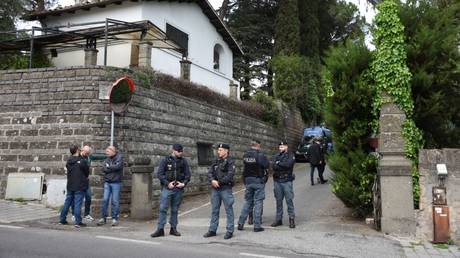
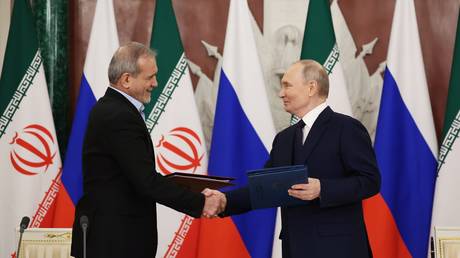
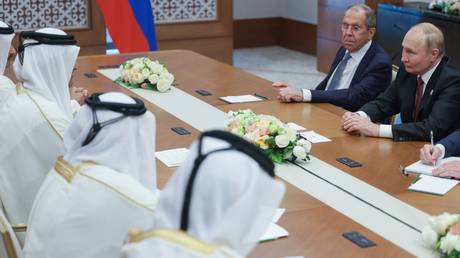
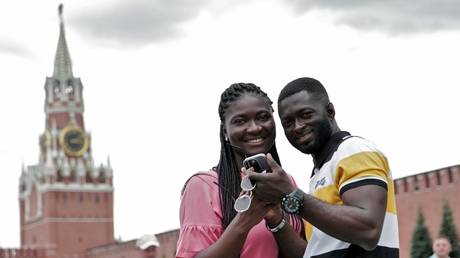
 "Anthony's father has since raised over $500,000 on GiveSendGo to pay for his son's legal defense.
"Anthony's father has since raised over $500,000 on GiveSendGo to pay for his son's legal defense. 

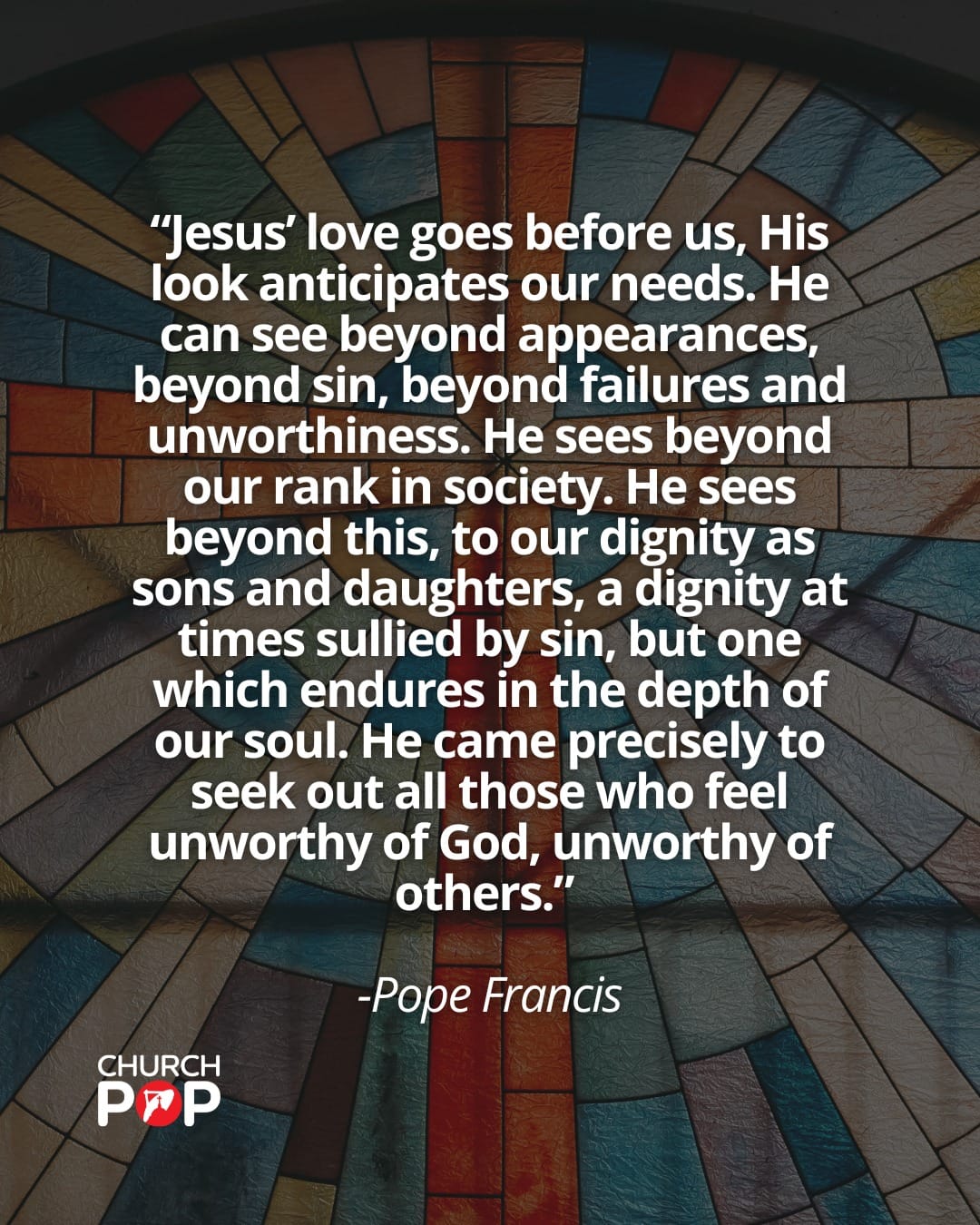 Caroline Perkins, ChurchPOP“Jesus’ love goes before us, his look anticipates our needs. He can see beyond appearances, beyond sin, beyond failures and unworthiness. He sees beyond our rank in society. He sees beyond this, to our dignity as sons and daughters, a dignity at times sullied by sin, but one which endures in the depth of our soul. He came precisely to seek out all those who feel unworthy of God, unworthy of others.” (Cuba/U.S. Visit, 2015)
Caroline Perkins, ChurchPOP“Jesus’ love goes before us, his look anticipates our needs. He can see beyond appearances, beyond sin, beyond failures and unworthiness. He sees beyond our rank in society. He sees beyond this, to our dignity as sons and daughters, a dignity at times sullied by sin, but one which endures in the depth of our soul. He came precisely to seek out all those who feel unworthy of God, unworthy of others.” (Cuba/U.S. Visit, 2015)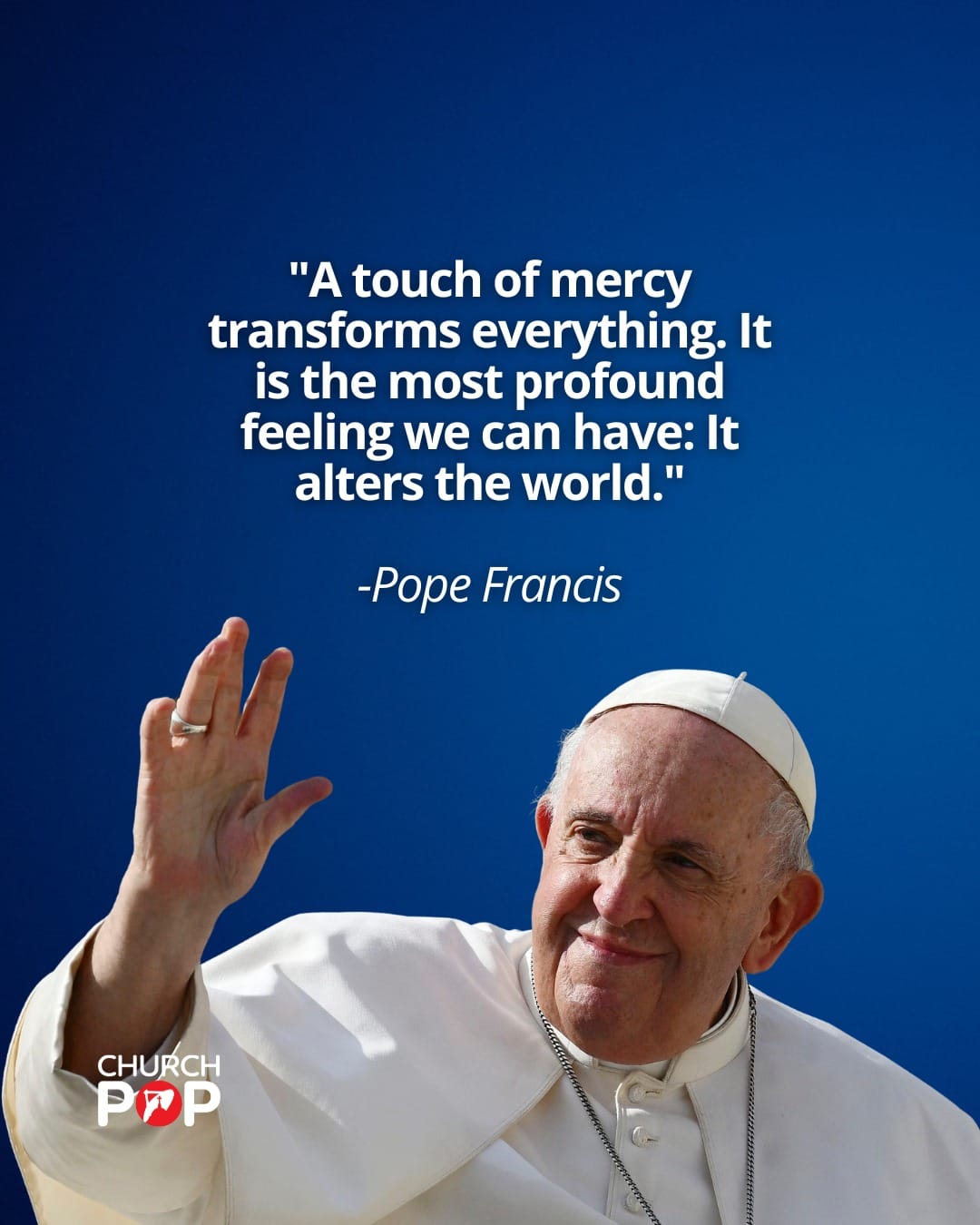 Caroline Perkins, ChurchPOP"A touch of mercy transforms everything. It is the most profound feeling we can have: It alters the world." (First Angelus prayer, March 17, 2013)
Caroline Perkins, ChurchPOP"A touch of mercy transforms everything. It is the most profound feeling we can have: It alters the world." (First Angelus prayer, March 17, 2013)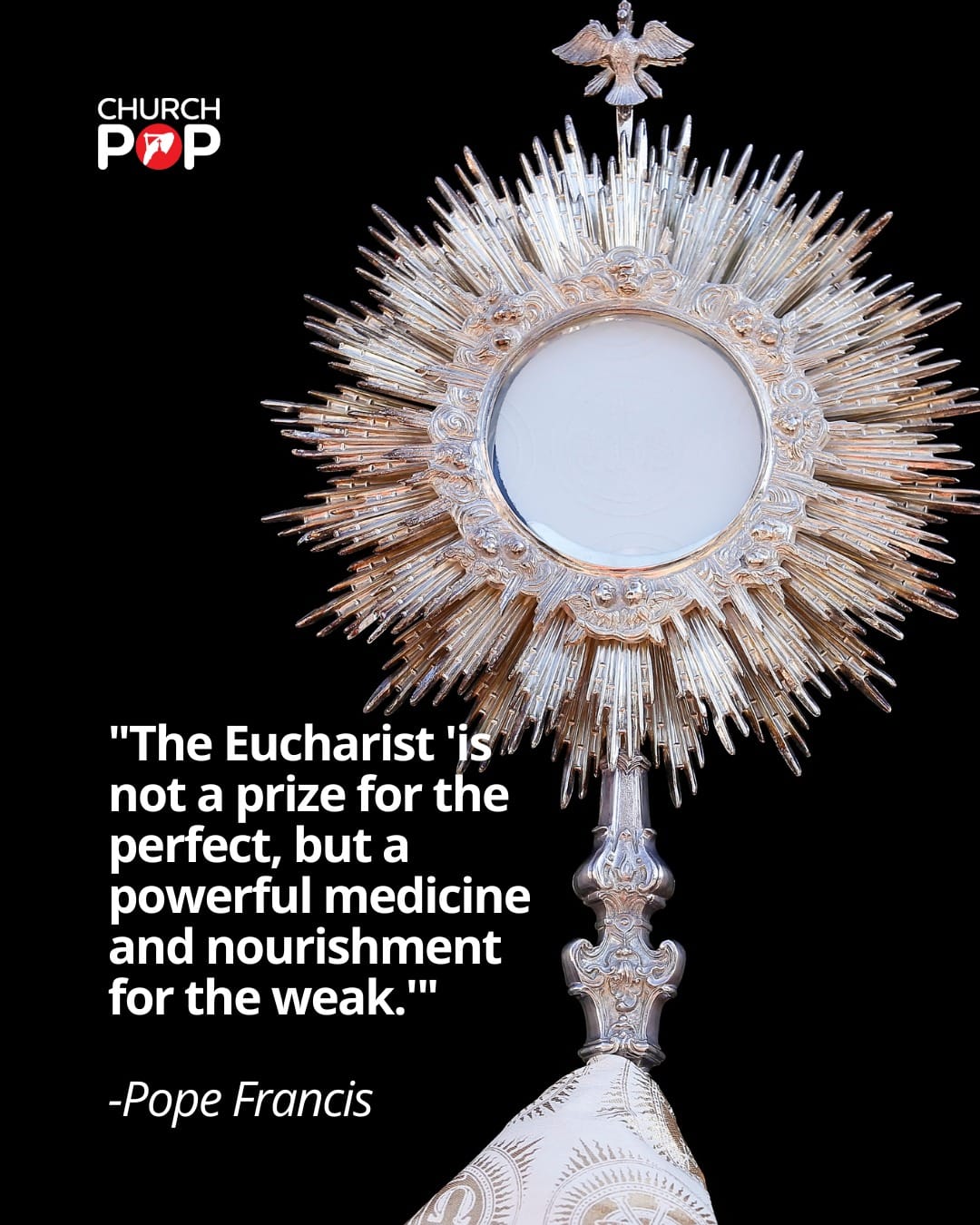 Caroline Perkins, ChurchPOP"The Eucharist 'is not a prize for the perfect, but a powerful medicine and nourishment for the weak.'" (Amoris Laetitia, April 8, 2016)
Caroline Perkins, ChurchPOP"The Eucharist 'is not a prize for the perfect, but a powerful medicine and nourishment for the weak.'" (Amoris Laetitia, April 8, 2016) Caroline Perkins, ChurchPOP"Dear young people, do not be afraid of making decisive choices in life. Have faith; the Lord will not abandon you!"
Caroline Perkins, ChurchPOP"Dear young people, do not be afraid of making decisive choices in life. Have faith; the Lord will not abandon you!"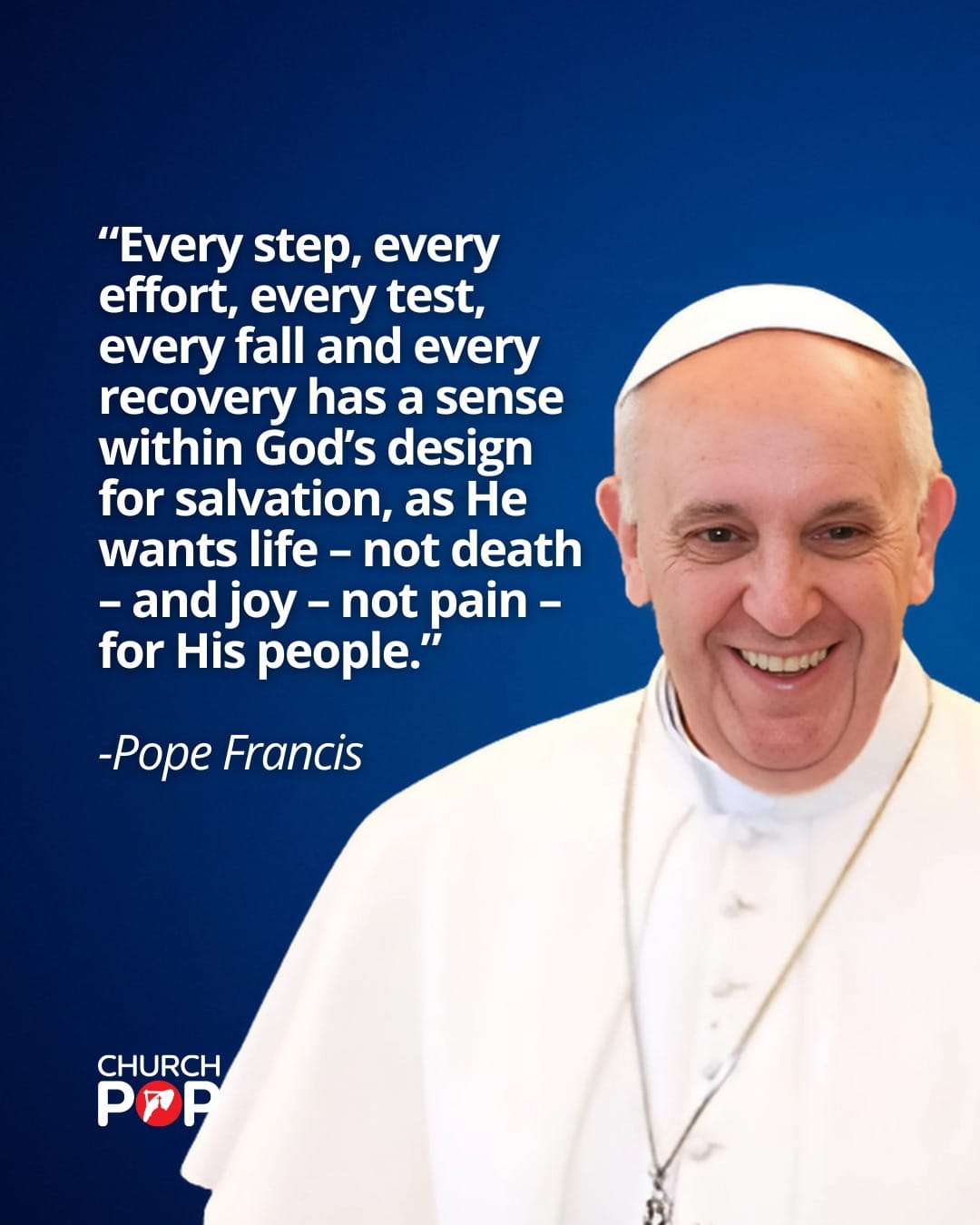 Caroline Perkins, ChurchPOP“Every step, every effort, every test, every fall and every recovery has a sense within God’s design for salvation, as He wants life – not death – and joy – not pain – for His people.” (Ash Wednesday General Audience, 2017)
Caroline Perkins, ChurchPOP“Every step, every effort, every test, every fall and every recovery has a sense within God’s design for salvation, as He wants life – not death – and joy – not pain – for His people.” (Ash Wednesday General Audience, 2017) Caroline Perkins, ChurchPOP"A vocation flows from the heart of God and blossoms in the good soil of faithful people." (World Day of Prayer for Vocations 2014)
Caroline Perkins, ChurchPOP"A vocation flows from the heart of God and blossoms in the good soil of faithful people." (World Day of Prayer for Vocations 2014)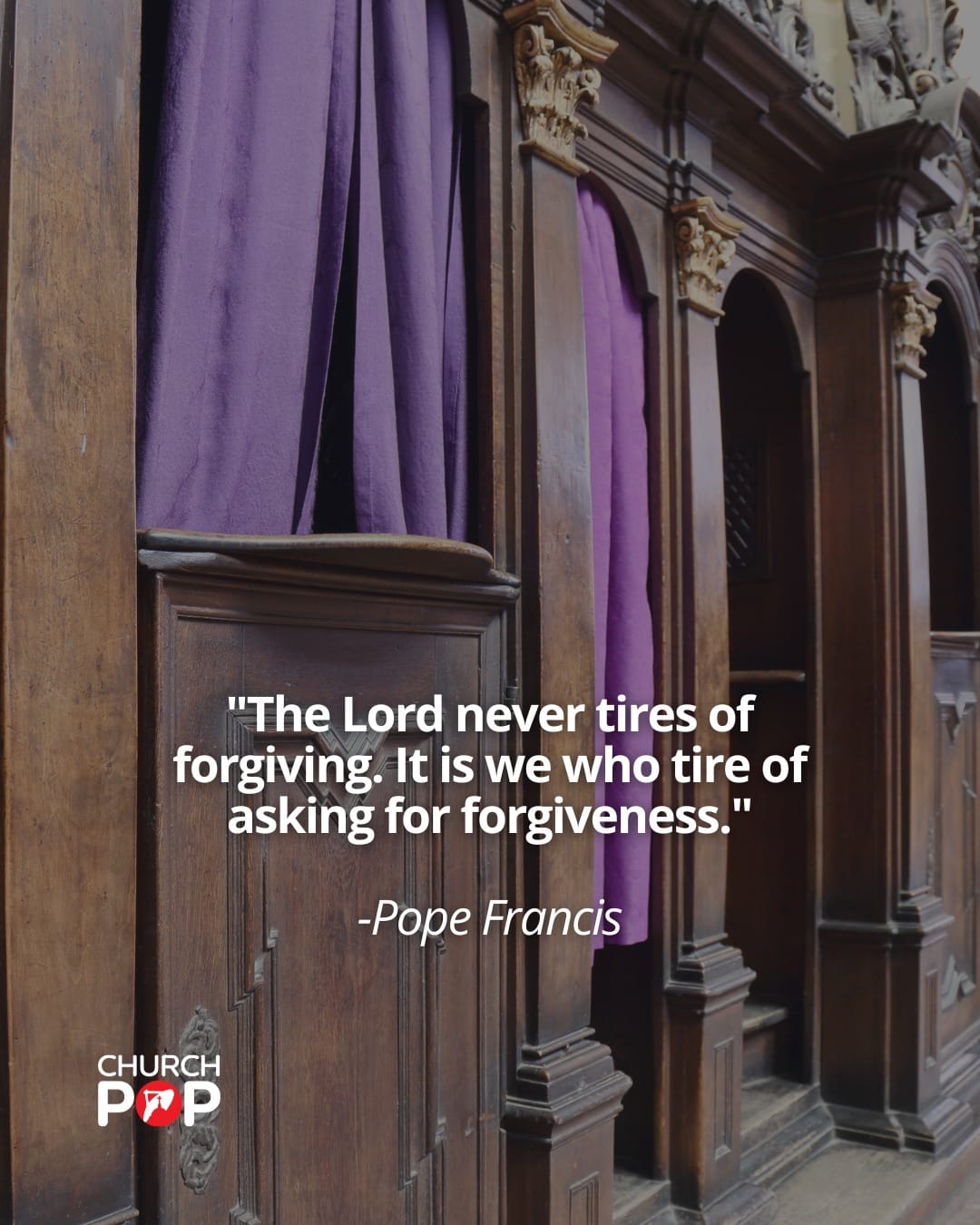 Caroline Perkins, ChurchPOP"The Lord never tires of forgiving. It is we who tire of asking for forgiveness."
Caroline Perkins, ChurchPOP"The Lord never tires of forgiving. It is we who tire of asking for forgiveness."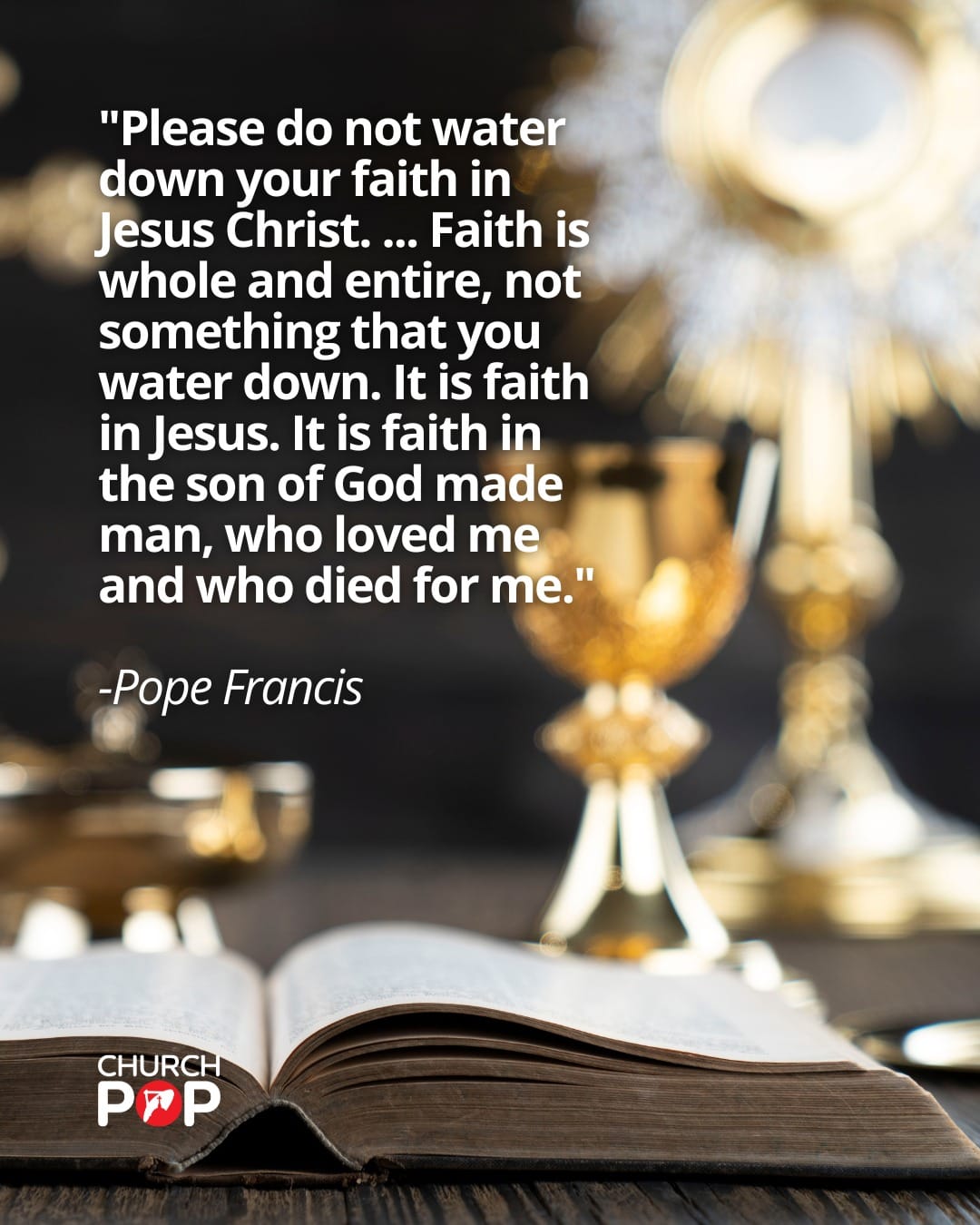 Caroline Perkins, ChurchPOP"Please do not water down your faith in Jesus Christ. ... Faith is whole and entire, not something that you water down. It is faith in Jesus. It is faith in the son of God made man, who loved me and who died for me." (World Youth Day, July 25, 2013)
Caroline Perkins, ChurchPOP"Please do not water down your faith in Jesus Christ. ... Faith is whole and entire, not something that you water down. It is faith in Jesus. It is faith in the son of God made man, who loved me and who died for me." (World Youth Day, July 25, 2013)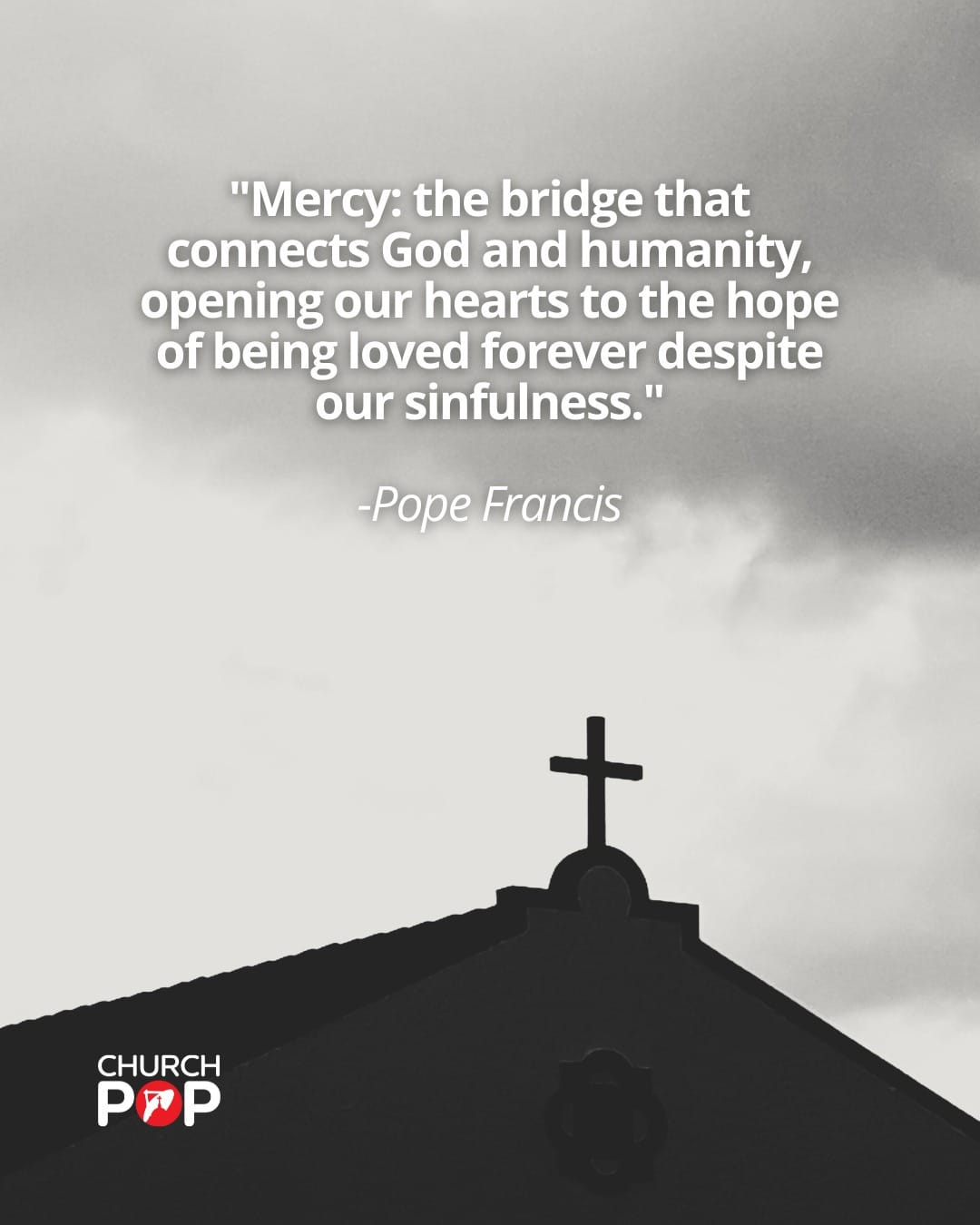 Caroline Perkins, ChurchPOP"Mercy: the bridge that connects God and humanity, opening our hearts to the hope of being loved forever despite our sinfulness." (Misericordiae Vultus, April 11, 2015)
Caroline Perkins, ChurchPOP"Mercy: the bridge that connects God and humanity, opening our hearts to the hope of being loved forever despite our sinfulness." (Misericordiae Vultus, April 11, 2015)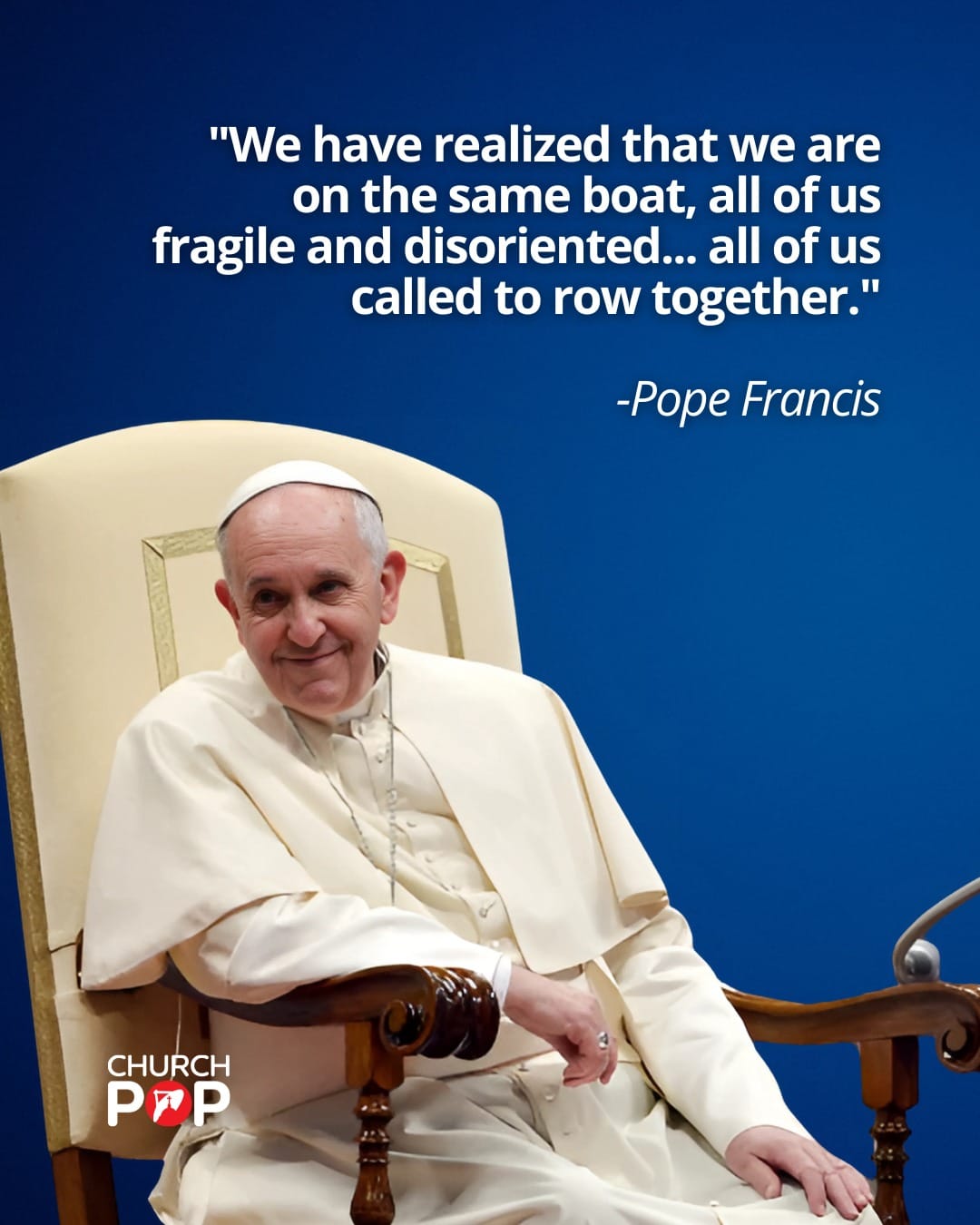 Caroline Perkins, ChurchPOP"We have realized that we are on the same boat, all of us fragile and disoriented... all of us called to row together." (Prayer during COVID-19 pandemic, March 27, 2020)
Caroline Perkins, ChurchPOP"We have realized that we are on the same boat, all of us fragile and disoriented... all of us called to row together." (Prayer during COVID-19 pandemic, March 27, 2020)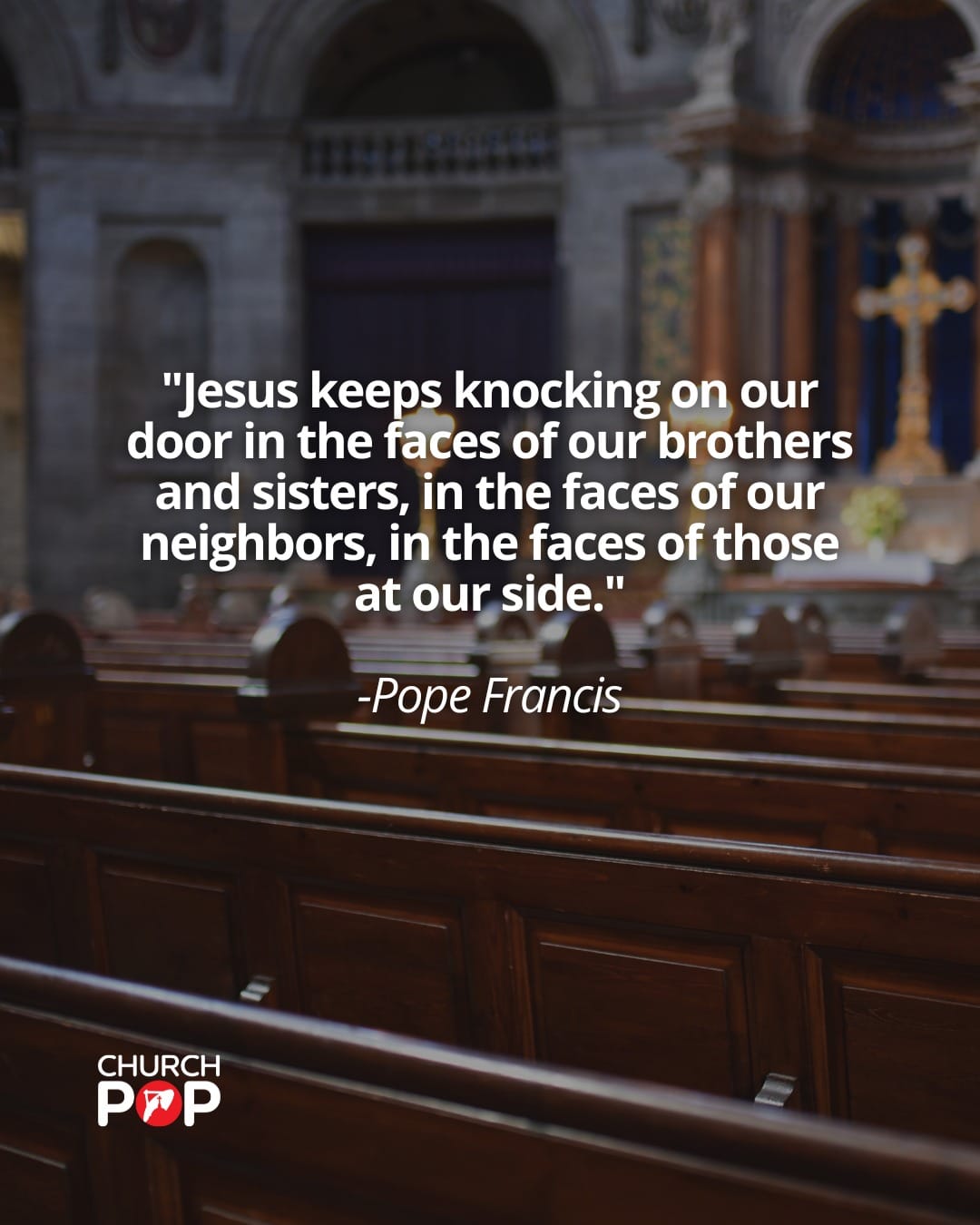 Caroline Perkins, ChurchPOP"Jesus keeps knocking on our door in the faces of our brothers and sisters, in the faces of our neighbors, in the faces of those at our side."
Caroline Perkins, ChurchPOP"Jesus keeps knocking on our door in the faces of our brothers and sisters, in the faces of our neighbors, in the faces of those at our side."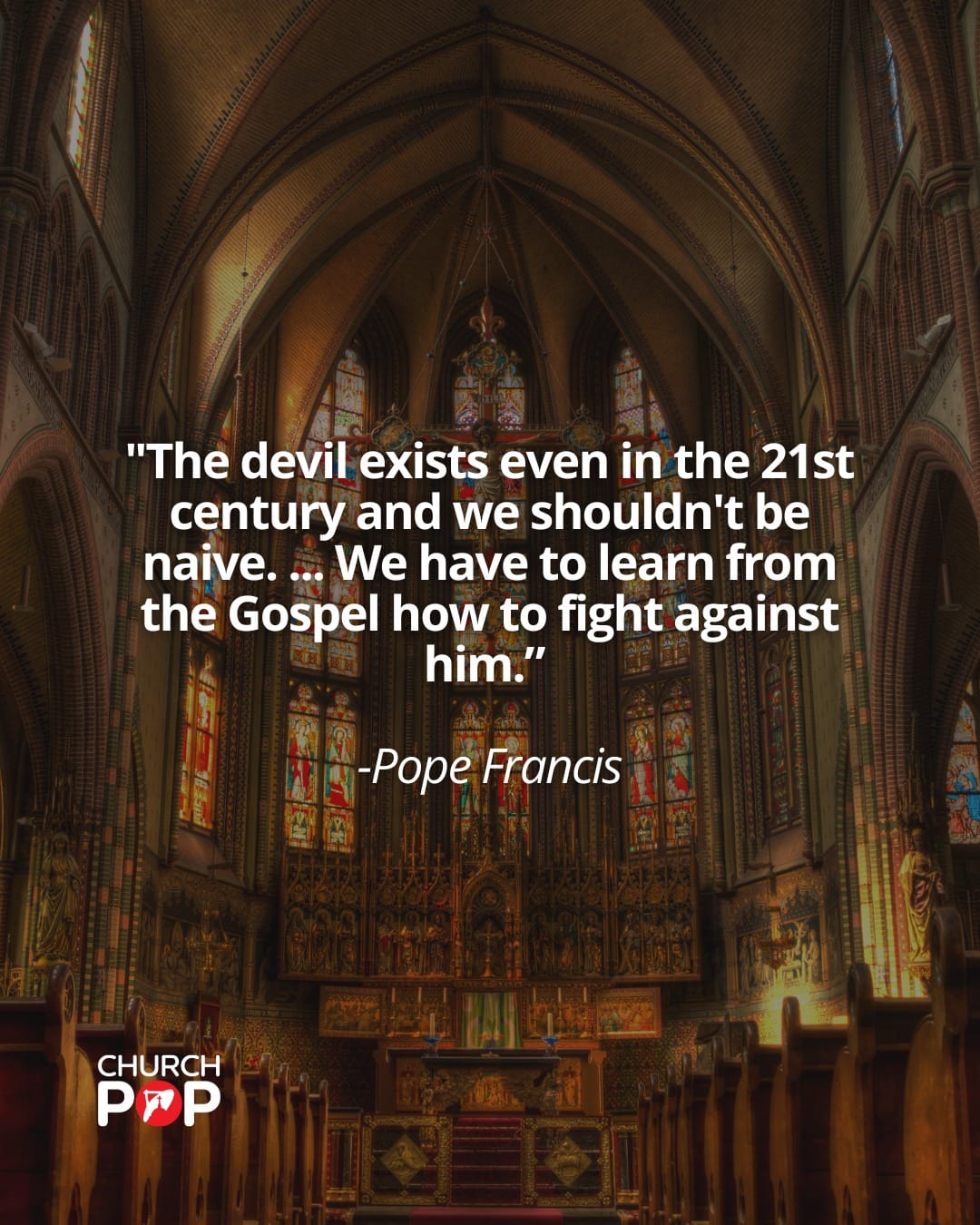 Caroline Perkins, ChurchPOP"The devil exists even in the 21st century and we shouldn't be naive. ... We have to learn from the Gospel how to fight against him.” (Homily, April 11, 2014)
Caroline Perkins, ChurchPOP"The devil exists even in the 21st century and we shouldn't be naive. ... We have to learn from the Gospel how to fight against him.” (Homily, April 11, 2014)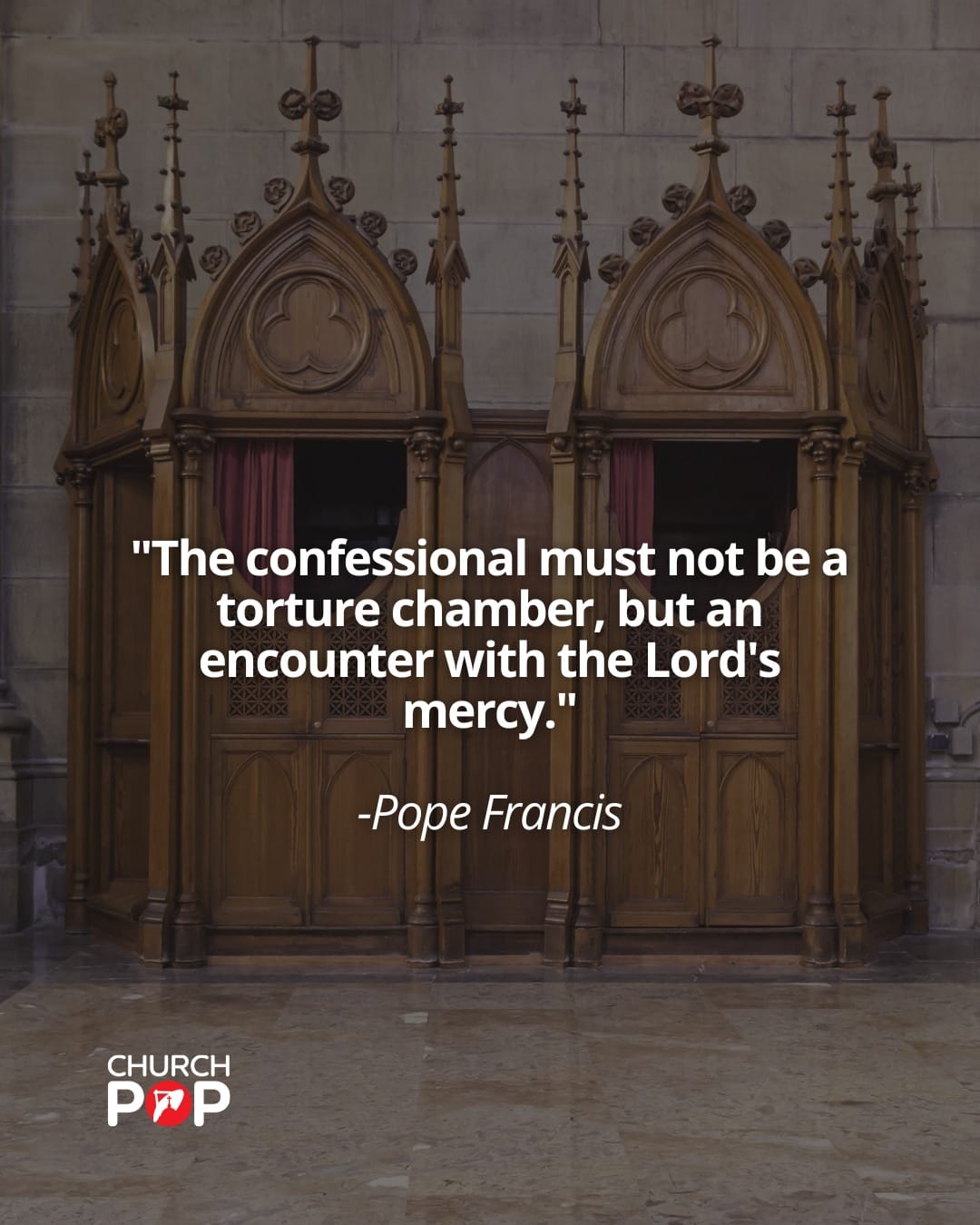 Caroline Perkins, ChurchPOP"The confessional must not be a torture chamber, but an encounter with the Lord's mercy." (Amoris Laetitia, April 8, 2016)
Caroline Perkins, ChurchPOP"The confessional must not be a torture chamber, but an encounter with the Lord's mercy." (Amoris Laetitia, April 8, 2016)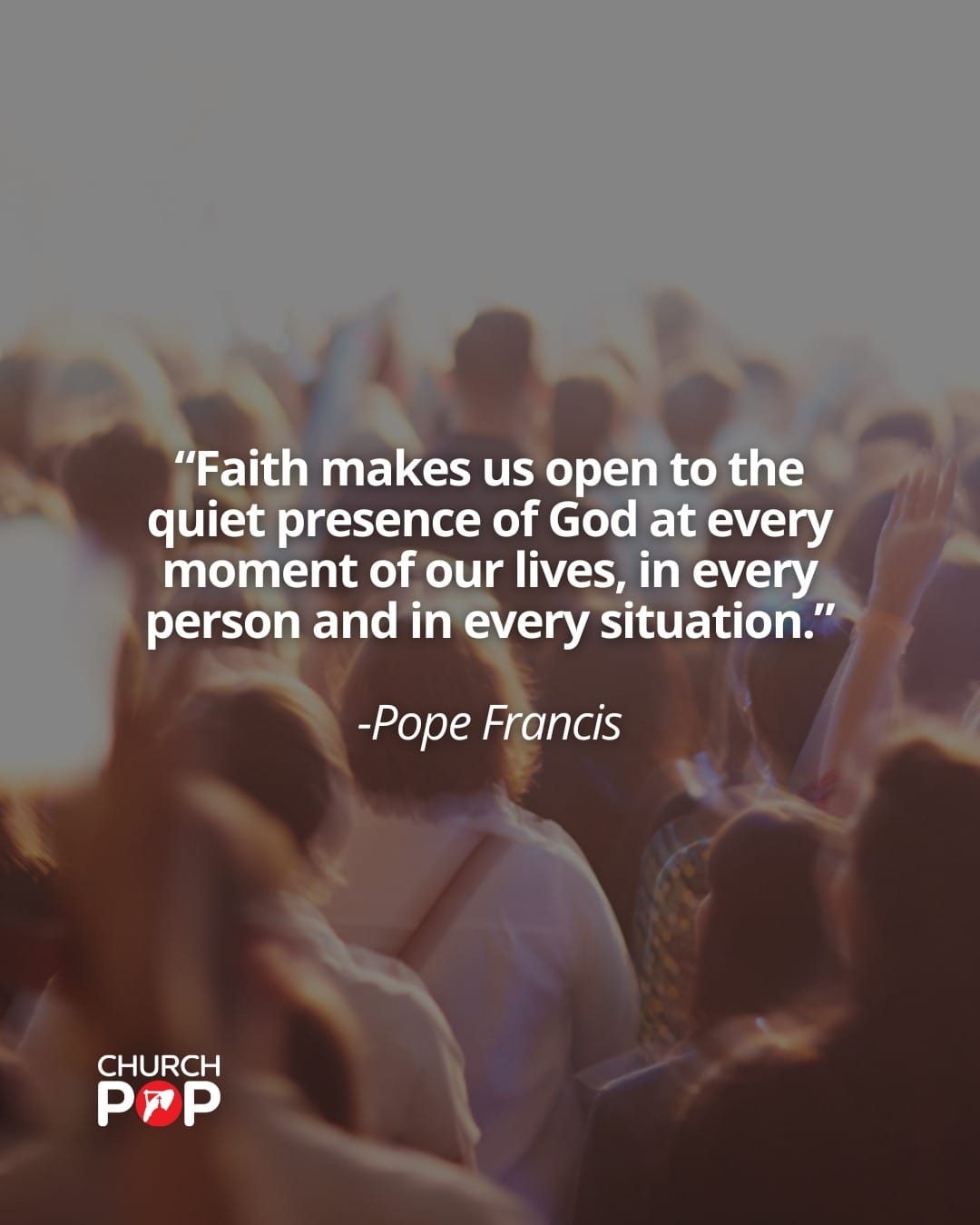 Caroline Perkins, ChurchPOP“Faith makes us open to the quiet presence of God at every moment of our lives, in every person and in every situation.” (Cuba/U.S. Visit, 2015)
Caroline Perkins, ChurchPOP“Faith makes us open to the quiet presence of God at every moment of our lives, in every person and in every situation.” (Cuba/U.S. Visit, 2015)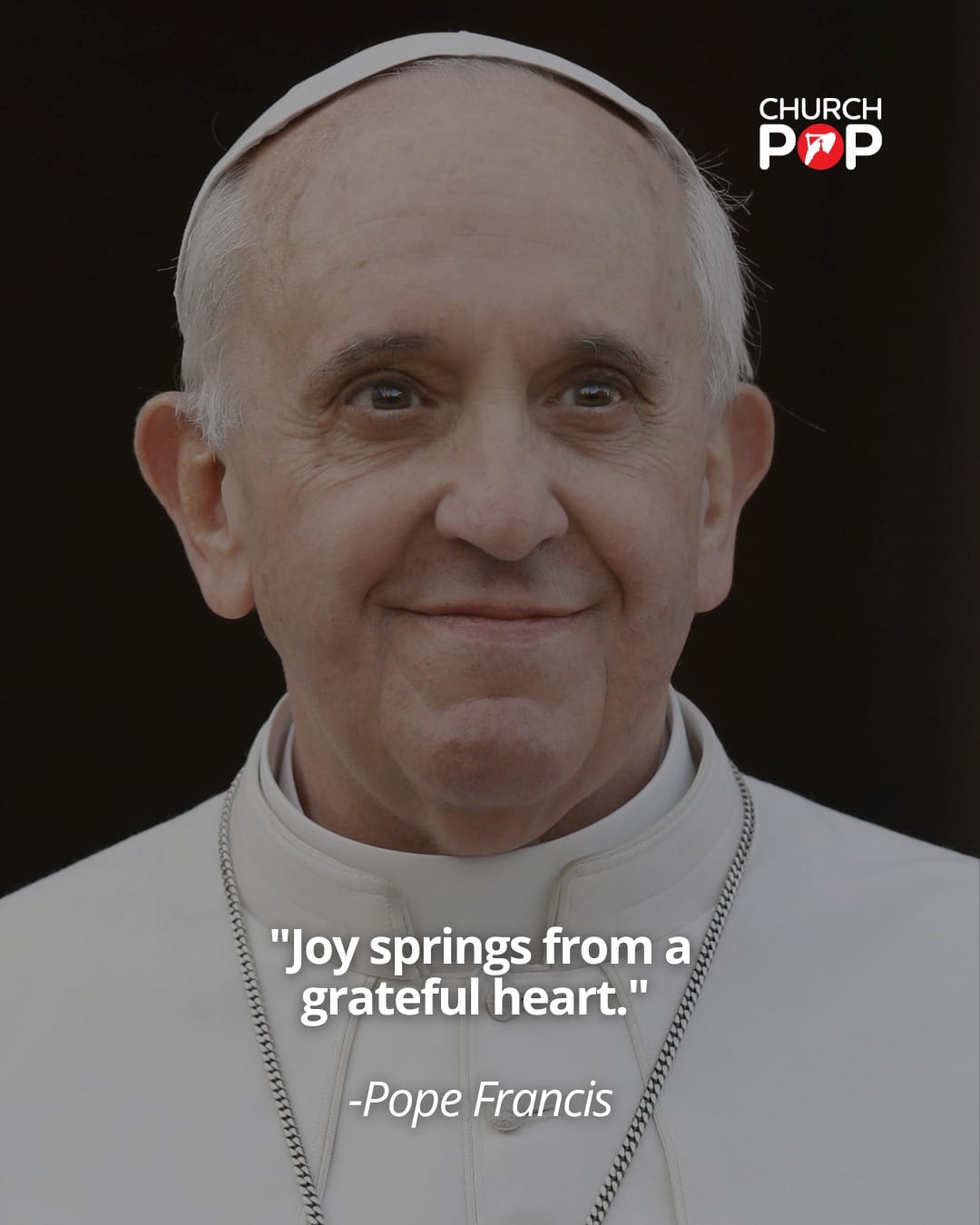 Caroline Perkins, ChurchPOP"Joy springs from a grateful heart." (Sept. 23, 2015)
Caroline Perkins, ChurchPOP"Joy springs from a grateful heart." (Sept. 23, 2015)
